Featured
Dare’s Daring 6 Months Exploits in Youth and Sports Development
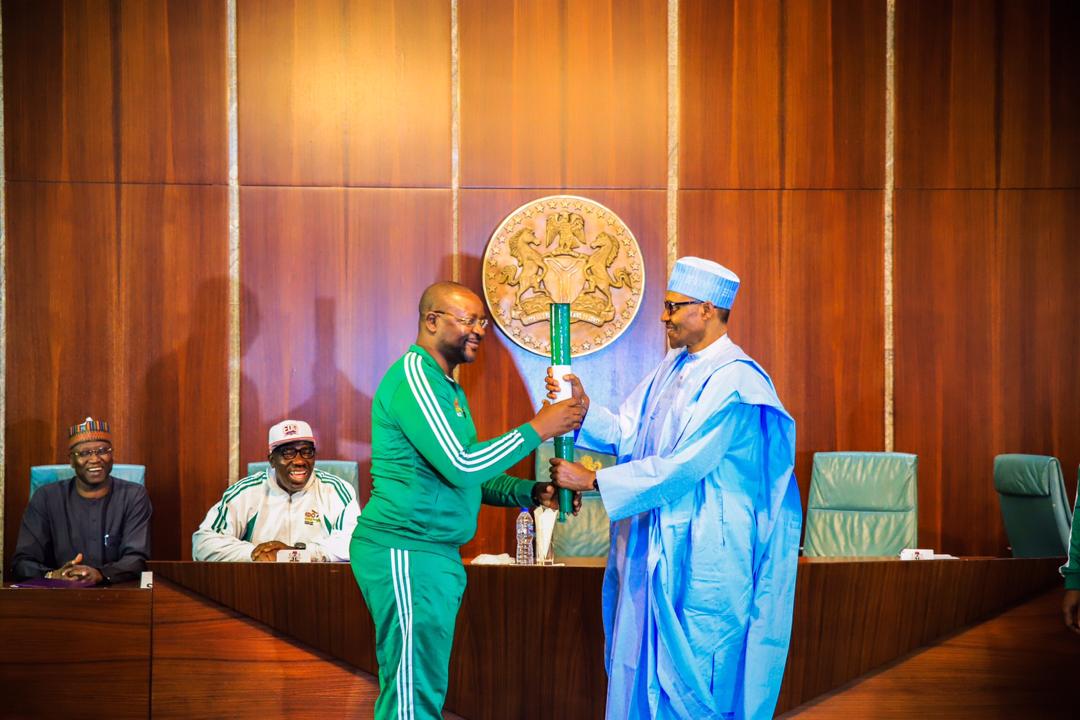
When President Muhammadu Buhari named Sunday Dare as Youths and Sports Minister six months ago, he was applauded for making the right choice.
The excitement generated by Dare’s appointment was hinged on his pedigree as an accomplished international journalist, administrative exposure and experience in public service.
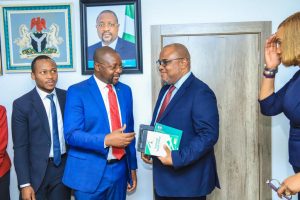
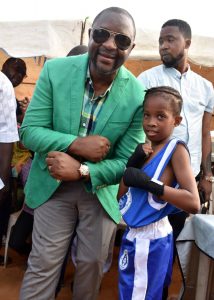
Prior to Dare’s appointment, the belief was that sports was usually the last in the pecking order of merit.
Some ex-ministers had laid credence to this with seemingly poor performances and lack of vision that has kept Nigerian sports in the archives of past glory and youth development at a crossroads. Six months down the line, Dare is reinventing the wheels.
The long years of systemic destruction, failed dreams, poor planning, disillusionment and frustrations have left the terrain comatose and at a crossroads. Decaying infrastructure, poorly motivated athletes, disgruntled work force, poorly trained coaches, archaic policy and angrily resentful public make the assignment not only herculean, but one that needs ruffling of feathers.
Dare began his assignment by seeking to change the mindset of the workers and the wrong perception of the public that nothing can work in the sector. For someone from a technologically driven background, Dare had to change the mindset of the Ministry’s staff. Gradually, in the last six months, the work ethic has changed.
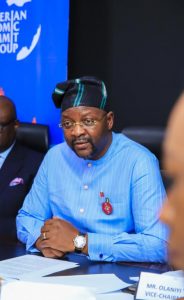
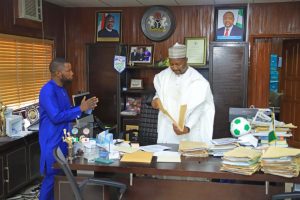
With a Permanent Secretary in Gabriel Aduda who is desirous of breaking away from old tradition, Dare has moved in leaps and bounds. He has restored confidence in the ministry as evidenced in the partnership with the private sector, agencies and international bodies. His first breakthrough was moving away from the narrow scope of being called ‘Football Minister’.
Under Dare, Youth and Sports Development have been given a new vista. He hit the ground running with his Adopt initiative which has seen corporate organisations, governors and individuals adopting athletes, signing MoUs and paying money directly into their accounts to prepare for the now postponed Tokyo Olympics. This is against the convention where Olympics-bound athletes never had funds to prepare.
The ripple effect is that it takes away the burden off the athletes, administrators and the coaches. This ensures transparency and accountability of funds. The Adopt initiative has also led to infrastructural developments with the rehabilitation of stadiums in Abuja, Kaduna Ibadan through partnerships.
This has restored faith in the sports scene. Sponsors, Individuals and others now feel comfortable investing in Sports with the belief that there is proper accountability and due process.
The Adopt A stadium initiative is also paying off with the MKO Abiola Stadium in Abuja to be renovated by Alhaji Aliko Dangote, Daura Township Stadium, Katsina by Chief Kensington Adebutu, Ahmadu Bello Stadium by Kaduna State Governor Malam Nasir El Rufai. The entire sports spectrum is being revived despite the paucity of funds.
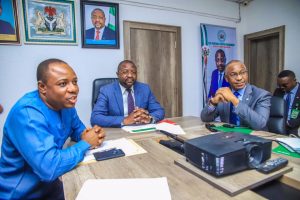

Dare’s master plan is moving sports away from mere recreation to real business anchored on 4 triggers; infrastructure as catalyst for development, investment, incentives and policy. The inauguration of the steering committee of Sports Industry Group led by eminent personalities is an indication of a new dawn, hope and renewal in the sports sector by the organised private sector.
Unlike past Ministers who became pigeonholed as football Ministers, Dare is re-inventing the wheel by paying attention to other sports and youth development. This has seen him navigate round the country in search of talents, revival of the state Sports Festival, launching of a Youth policy document, Digital training and creation of employment opportunities.
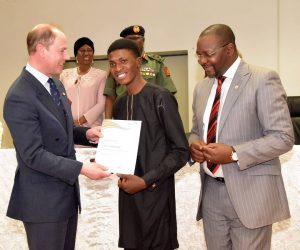
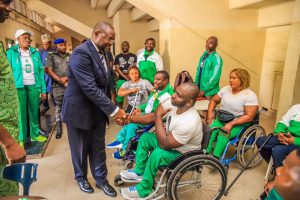
His interventions are already yielding results with the discovery of the young swimmer nicknamed the Fish, the young girl boxing sensation Shekina, the tennis sisters Oiza and Nene Yakubu. No wonder he has earned himself the sobriquet “Talent Hunter, Reformist Minister among others.
The revival of the National Sports Festival, Youth Games, NUGA, back to school, Principal Cup, Headmaster Cup among others are geared towards enduring sports development. Welfare of athletes occupies a front burner in the Minister’s agenda with athletes getting their entitlements promptly.
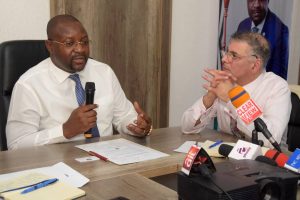
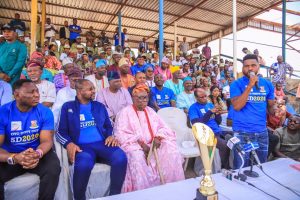
Dare insists that without sports men, sports will be meaningless as they are the core of winning glory for our country. Hence, while active athletes are getting remunerated, forgotten heroes are also getting due recognition. Dare is working with top athletes like Mary Onyali, Daniel Igali, Daniel Amokachi, Joseph Yobo among others in rallying their colleagues to actualize his new vision.
Youths now enjoy a new deal under the DEEL PROGRAMME, an acronym for Education, Employment, Entrepreneurship and Engagement. Through this, youths are being trained to acquire Digital skills and become self-employed.
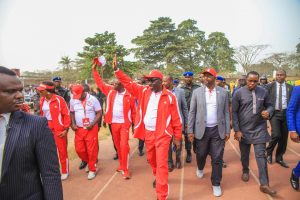
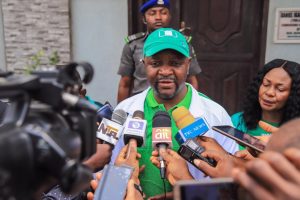
The Minister has gone into strategic partnership with at least 20 agencies to implement this action plan. More than 500,000 Youths are expected to benefit from the DY.NG (Digital Youth Nigeria initiative. Likewise, The Nigeria Youth Online, NOYA programme is expected to train youngsters in Digital skills, trading and internship. This would be done through the Youth Development centres across Nigeria. An agreement with the AFDB has been signed to actualize this mandate.
Other Development partners include Centre Bank, Bank of Industries, Ministry of Labour and Productivity, Nigeria Content Development Monitoring Board, Dangote Industries, Premier Lotto, 21st Century and partnership with over 50 Corporate Organizations on WEP initiative. Since the Ministry is limited by funds, Dare is thinking outside the box by partnering with the private sector, wealthy individuals, State Governments, Agencies and International organizations to actualize what he calls a huge, unfunded mandate.
Six months in the saddle, Dare appears to be on the right track of rewriting Nigerian Youth and Sports Development history.
Featured
NELFUND: The Renewed Hope Engine Propelling Nigeria’s Youth into Tomorrow

By Dayo Israel, National Youth Leader, APC
As the National Youth Leader of the All Progressives Congress, I have spent most of my tenure fighting for a Nigeria where every young person, regardless of their ward or local government, family income, or circumstance, can chase dreams without the chains of financial despair.
Today, that fight feels like victory, thanks to the Nigerian Education Loan Fund (NELFUND). Launched as a cornerstone of President Bola Ahmed Tinubu’s Renewed Hope Agenda, this initiative isn’t just a policy tweak; it’s a revolution. And under the steady, visionary hand of Managing Director Akintunde Sawyerr, NELFUND has transformed from a bold promise into a roaring engine of opportunity, disbursing over ₦116 billion to more than 396,000 students and shattering barriers for over a million applicants.
Let’s be clear: NELFUND was always destined to be a game-changer. Signed into law by President Tinubu on April 3, 2024, it repealed the outdated 2023 Student Loan Act, replacing it with a modern, inclusive framework that covers tuition, upkeep allowances, and even vocational training—ensuring no Nigerian youth is left on the sidelines of progress.
But what elevates it from groundbreaking to generational? Leadership. Enter Akintunde Sawyerr, the diplomat-turned-executioner whose career reads like a blueprint for results-driven governance. From co-founding the Agricultural Fresh Produce Growers and Exporters Association of Nigeria (AFGEAN) in 2012—backed by icons like former President Olusegun Obasanjo and Dr. Akinwumi Adesina—to steering global logistics at DHL across 21 countries, Sawyerr brings a rare alchemy: strategic foresight fused with unyielding accountability.
As NELFUND’s pioneer MD, he’s turned a fledgling fund into a finely tuned machine, processing over 1 million applications since May 2024 and disbursing ₦116 billion—₦61.33 billion in institutional fees and ₦46.35 billion in upkeep—to students in 231 tertiary institutions nationwide. That’s not bureaucracy; that’s brilliance.
Sawyerr’s touch is everywhere in NELFUND’s ascent. Since the portal’s launch, he’s overseen a digital ecosystem that’s as transparent as it is efficient—seamless verification, BVN-linked tracking, and real-time dashboards that have quashed misinformation and built trust. In just 18 months, the fund has empowered 396,252 students with interest-free loans, many first-generation learners who might otherwise have dropped out.
Sensitization drives in places like Ekiti and Ogun have spiked applications — 12,000 in a single day in one instance, while expansions to vocational centers in Enugu pilot the next wave of skills-based funding. And amid challenges like data mismatches and fee hikes, Sawyerr’s team has iterated relentlessly: aligning disbursements with academic calendars, resuming backlogged upkeep payments for over 3,600 students, and even probing institutional compliance to safeguard every kobo. This isn’t management; it’s mastery—a man who doesn’t just lead but launches futures.
Yet, none of this happens in a vacuum. President Tinubu’s alliance with trailblazers like Sawyerr is the secret sauce securing Nigeria’s tomorrow. The President’s Renewed Hope Agenda isn’t rhetoric; it’s resources—₦100 billion seed capital channeled into a system that prioritizes equity over elitism. Together, they’ve forged a partnership where vision meets velocity: Tinubu’s bold repeal of barriers meets Sawyerr’s boots-on-the-ground execution, turning abstract policy into tangible triumphs. It’s a synergy that’s non-discriminatory by design—Christians, Muslims, every tribe and tongue united in access—fostering national cohesion through classrooms, not courtrooms.
As Sawyerr himself notes, this is “visionary leadership” in action, where the President’s political will ignites reforms that ripple across generations.
Why does this matter to us, Nigeria’s youth? Because NELFUND isn’t handing out handouts—it’s handing out horizons. In a country where 53% of us grapple with unemployment, these loans aren’t just funds; they’re fuel for innovation, entrepreneurship, and endurance.
Picture it: A first-generation polytechnic student in Maiduguri, once sidelined by fees, now graduates debt-free (repayments start two years post-NYSC, employer-deducted for ease) and launches a tech startup. Or a vocational trainee in Enugu, equipped with skills funding, revolutionizing local agriculture. This is quality education that endures—not fleeting certificates, but lifelong launchpads. Sawyerr’s focus on human-centered design ensures loans cover not just books, but bread—upkeep stipends of ₦20,000 monthly keeping hunger at bay so minds can soar. Under his watch, NELFUND has debunked doubts, refuted fraud claims, and delivered results that scream sustainability: Over ₦99.5 billion to 510,000 students by September, with 228 institutions on board.
As youth leaders, we see NELFUND for what it is: A covenant with our future. President Tinubu and MD Sawyerr aren’t just allies; they’re architects of an educated, empowered Nigeria—one where poverty’s grip loosens with every approved application, and innovation blooms from every funded desk. This isn’t charity; it’s an investment in the 70 million of us who will lead tomorrow.
We’ve crossed one million applications not because of luck, but leadership—a duo that’s turning “access denied” into “future unlocked.”
To President Tinubu: Thank you for daring to dream big and backing it with action.
To Akintunde Sawyerr: You’re the executor we needed, proving that one steady hand can steady a nation.
And to every Nigerian youth: Apply. Graduate. Conquer.
Because with NELFUND, your generation isn’t just surviving—it’s thriving, enduring, and eternal.
The Renewed Hope isn’t a slogan; it’s our story, now written in scholarships and success. Let’s keep turning the page.
Dayo Israel is the National Youth Leader of the All Progressives Congress (APC).
-

 Featured6 years ago
Featured6 years agoLampard Names New Chelsea Manager
-

 Featured6 years ago
Featured6 years agoFG To Extends Lockdown In FCT, Lagos Ogun states For 7days
-

 Featured6 years ago
Featured6 years agoChildren Custody: Court Adjourns Mike Ezuruonye, Wife’s Case To April 7
-

 Featured6 years ago
Featured6 years agoNYSC Dismisses Report Of DG’s Plan To Islamize Benue Orientation Camp
-

 Featured4 years ago
Featured4 years agoTransfer Saga: How Mikel Obi Refused to compensate me After I Linked Him Worth $4m Deal In Kuwait SC – Okafor
-
Sports3 years ago
TINUBU LAMBAST DELE MOMODU
-

 News11 months ago
News11 months agoZulu to Super Eagles B team, President Tinubu is happy with you
-
Featured6 years ago
Board urges FG to establish one-stop rehabilitation centres in 6 geopolitical zones
